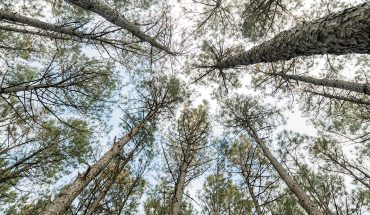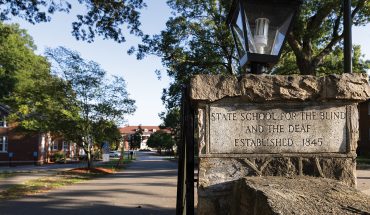by Charles Upchurch
photographs by Robert Willett
David Brooks sits astride his favorite polo pony on a banner day at Crooked Creek Farm, his home in northern Orange County. In a royal-blue jersey, polo helmet and knee boots, mallet and reins in hand, he cuts a figure as swashbuckling as any in Santa Barbara or Bridgehampton. His mount moves lightly beneath him, anticipating the knock-in and the first charge on goal.
Brooks, 45, pauses to take it in. His teammates today are sons Dawson, 12, and Dylan, 11, handsome young cut-outs of the old man. He scans the tableau of field, barn and Sunday spectators, the front porch of his nearby farmhouse shaded under native oaks. “Twenty years of work,” he says.
If building an 85-acre polo operation from scratch – with a playing field just outside your front door – weren’t enough, Brooks now finds himself on a mission to revive polo in his home state, where the game had all but disappeared. In Virginia, there are 10 U.S. Polo Association member clubs. In South Carolina, another 10. Brooks’s Triangle Area Polo Club, founded in 2011, is the only USPA member club in North Carolina.
Brooks shares a word of good luck and a smile with opponent Alan Hale, 46, of Raleigh. Hale is riding Tita, one of five Argentine polo ponies he has acquired since he began playing only four years ago. Hale has become a fine amateur player; last fall he competed in Aiken, S.C., among legends such as Julio Arellano, Owen Rinehart, and Adam Snow. But this isn’t the hallowed turf of Aiken, with 130 years of polo history. This is Hurdle Mills, less than an hour from Hale’s Raleigh home.
“To finally be playing here, so close to home, is amazing,” said Hale, who grew up in Wilson. “I fell in love with this game the first time I saw it, but never dreamed I would actually play.”
Calling the match over a PA system from the announcer’s stand is Hale’s wife, WRAL-TV anchor and Raleigh native Angela Hampton Hale, also a talented player who won her first tournament last year playing arena polo alongside Brooks’s wife, Leslie. The Hales’ 9-year-old daughter, Anna, works at the ready to assist dad with his change of mount between chukkers.
Having a ball
For Brooks and Hale, the satisfaction of the moment runs deep. One is a lifelong horseman, the other a health care executive who never rode until his 40th birthday. Both are surrounded by their families, playing a game that has opened doors into worlds that neither ever expected to visit, and having a ball. “We did it,” their smiles say to each other. “We’re playing polo.”
On this day, the competition is three-on-three, played on a well-tended pitch 165 yards long and 75 wide. Some 60 spectators have settled in for an afternoon of tailgating. As the match gets under way, the power and elegance of the world’s oldest team sport transform a lovely summer day into something charged with chivalry, and just enough danger to thrill the soul. Players and ponies race in pursuit of well-played shots, as a white ball is relayed in graceful arcs to the rumble of galloping thoroughbreds. Brooks and sons hold their own. Their Southern forebears include cattlemen and working cowboys and a great-great grandfather who rode with the Confederate cavalry.
Brooks was 20 in 1988 when he first saw polo in Rougemont, N.C., and found a calling. As a journeyman trainer and saddle maker, he traveled with Leslie on the horse circuit, including stops at polo centers in Atlanta and Lake Worth, Fla., playing against increasingly skilled competition. When the time came to start a family, the young couple came home, bought land near the Orange-Person County line, and set out to build a polo farm.
Alan and Angela Hale, meanwhile, were living in upstate New York when they became enamored with Sundays spent at polo matches in Saratoga Springs. When business began taking Alan to Palm Beach, he found himself kicking around the International Polo Club in Wellington, home of the USPA. There he met the legendary Gabriel Crespo, the former pro who now heads the pony-selection program at IPC. Before long, Crespo invited Hale to ride out with him to watch practices and to have a little “stick and ball.” Only, Hale didn’t ride. But polo, he discovered, will welcome you if you have passion and respect for the sport. Crespo took Hale under his wing. There was no going back. In Raleigh, he found David Brooks.
When Brooks opened Crooked Creek Farm in 2004, it was focused on polocrosse, the arena game that is similar to lacrosse on horseback. When Hale arrived in 2007, he asked Brooks to make him a polo player. They started with basic riding lessons, progressing to polocrosse, then arena polo (played in a riding ring with walls), and gradually taking it out to the big field.
“Alan never once asked me, ‘When are we going to play?’” said Brooks. “He trusted me to take him through the process and build the skills he needed, and I respected that about him.”
TAPC now includes the David Brooks Polo School, where lessons start at $240 for four sessions. Crooked Creek boards 32 polo ponies and hopes to grow. The club has 24 members, which Brooks expects will double within five years. He credits the USPA for helping the club establish professional teaching standards and for creating an atmosphere that encourages novices to try the sport. With instructor forums and interscholastic and intercollegiate programs, Brooks says, the USPA “is making polo more accessible to everyone.”
Team Brooks tallies the win on this day, and in polo tradition, congratulations and handshakes all around follow along with a celebratory spray of sparkling cider. This is not Palm Beach, or the Hamptons. This is polo in North Carolina, and for at least two men on this day, a dream come true.





